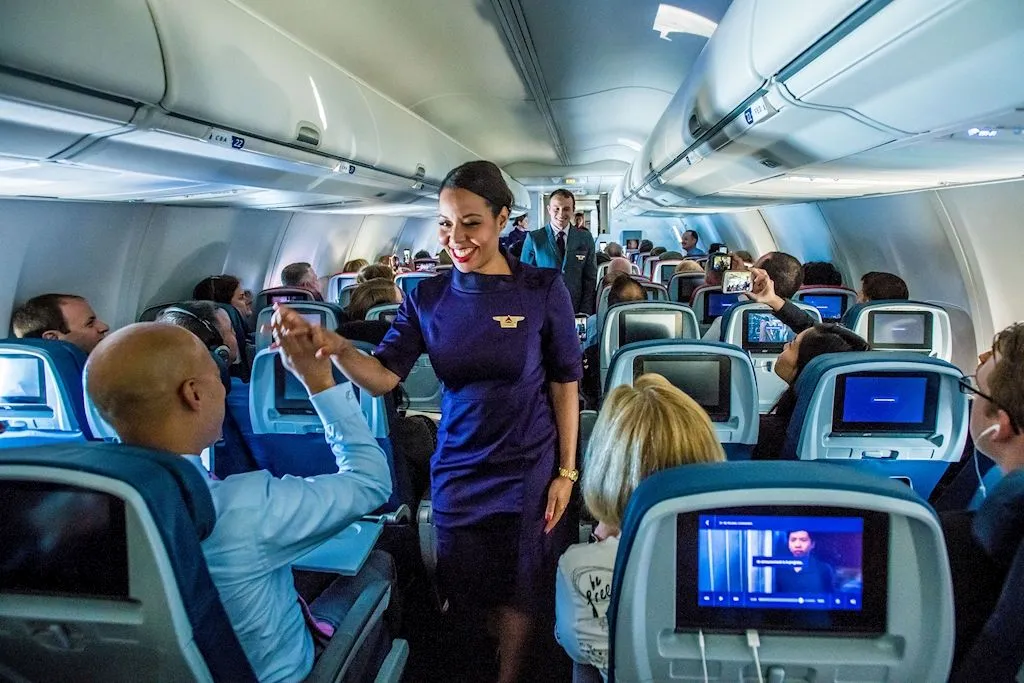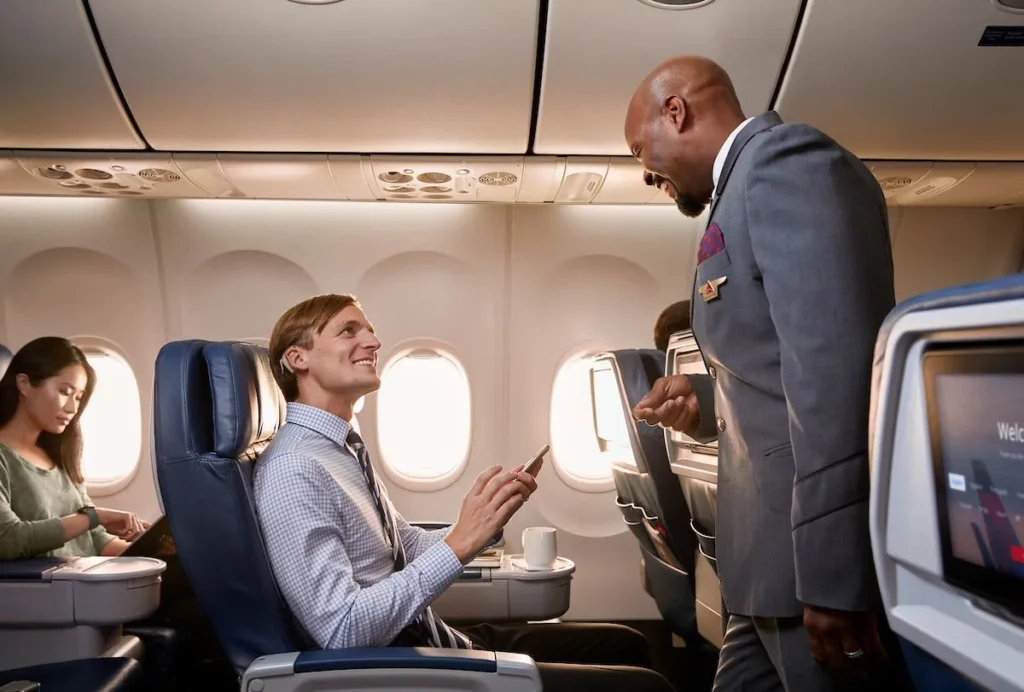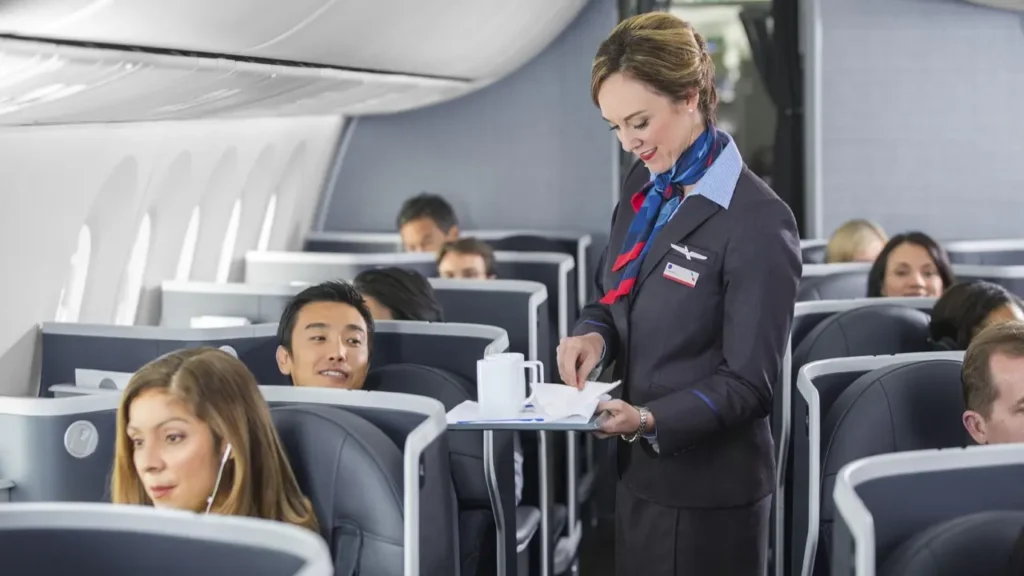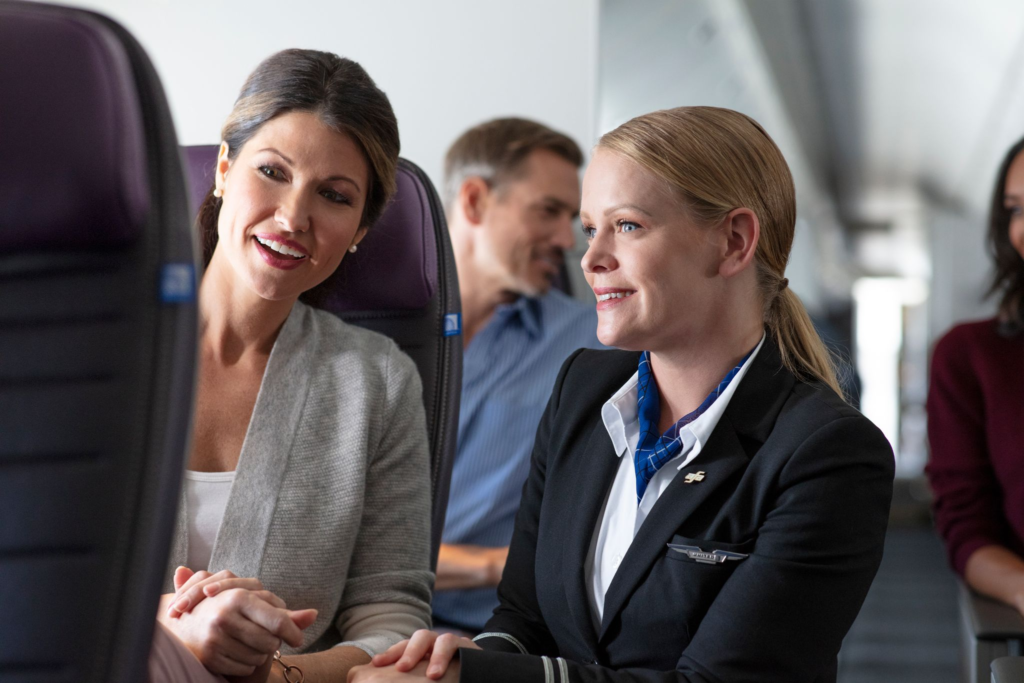
FORT WORTH- American Airlines (AA) operates from Dallas Fort Worth (DFW), where onboard service standards, including policies on carry-on baggage assistance, are shaped by both operational guidelines and crew safety priorities.
On a recent American Airlines domestic first-class flight from Dallas-Fort Worth (DFW), a passenger encountered differing crew responses when requesting help with stowing a carry-on bag, highlighting an often misunderstood aspect of US airline policy.
 Representative Photo: Delta Air Lines
Representative Photo: Delta Air LinesFlight Attendants’ Carry-On Bags
Many travelers assume flight attendants must help with overhead baggage, but US airline policies reveal a more complex reality.
While no major carrier explicitly prohibits assisting passengers, policies often discourage lifting due to workplace injury concerns.
OMAAT reports that airlines vary these guidelines, often influenced by union recommendations.
For example, Delta Air Lines (DL) notes that flight attendants “are unable to proactively assist” with placing bags overhead, but may help in certain cases. The word proactively is key; the crew can respond to requests but is not expected to initiate assistance.
Meanwhile, Southwest Airlines (WN) allows crew to assist, framing it as part of their hospitality culture, though not a strict obligation.
Unions representing flight attendants often caution against lifting heavy bags to prevent back and shoulder injuries. They recommend that if a crew member sustains an injury, they should immediately stop working the flight.
This approach creates inconsistency; passengers may encounter one attendant who declines to help entirely and another who readily assists.
On foreign carriers such as Singapore Airlines (SQ), flight attendants frequently offer proactive assistance regardless of the passenger’s age or physical ability.
In contrast, US airlines tend to limit such help, citing injury prevention and workload concerns. This cultural and operational difference can surprise international travelers accustomed to more hands-on service.
 Photo: Delta Air Lines
Photo: Delta Air LinesPassenger Expectations
Passengers, especially seniors or those with mobility issues, often expect assistance, particularly on first-class flights with American Airlines (AA) or Delta Air Lines (DL). However, the lack of a universal mandate means experiences vary.
For example, at airports like Miami International (MIA), a passenger might encounter a flight attendant who helps with a carry-on, while another on the same airline might refuse, creating inconsistency.
Frequent flyers may notice that oversized carry-ons exacerbate the issue. Flight attendants often express frustration with passengers who bring heavy or bulky bags, expecting crew assistance.
Airlines encourage passengers unable to lift their bags to check them instead, though this advice is not always practical for those needing immediate access to their belongings.
 Photo: American Airlines (Representative Photo)
Photo: American Airlines (Representative Photo)Balancing Courtesy and Safety
Flight attendants are not obligated to assist with carry-ons, but many choose to offer help as a courtesy, particularly for seniors or passengers with disabilities. This aligns with general societal norms of assisting those in need.
However, the lack of a clear requirement means passengers should not assume they will receive assistance.
Airlines like Southwest (WN) foster a culture of hospitality, encouraging crew members to help when possible, while others, like American Airlines (AA), leave it to individual discretion.
The challenge lies in finding a middle ground. Flight attendants manage demanding schedules and hundreds of passengers daily, often at busy hubs like Los Angeles International (LAX).
Expecting them to lift every bag is unreasonable, but selective assistance for those who genuinely need it could enhance the passenger experience without compromising safety.
 Representative Photo: United
Representative Photo: UnitedConclusion
Flight attendant policies on carry-on assistance in the US, particularly on airlines like American Airlines (AA) and Delta Air Lines (DL), reflect a balance between passenger expectations and crew safety.
While no airline bans assistance outright, the lack of a mandate and union-driven caution leads to inconsistent experiences.
Passengers flying from major airports like Dallas Fort Worth (DFW) or Chicago O’Hare (ORD) should manage their carry-ons independently or check them if lifting poses a challenge.
Stay tuned with us. Further, follow us on social media for the latest updates.
Join us on Telegram Group for the Latest Aviation Updates. Subsequently, follow us on Google News
Flight Attendant’s Secrets for Looking Fresh at 35,000 Feet
The post Flight Attendant Policies on Carry-On Bag Assistance Explained appeared first on Aviation A2Z.












